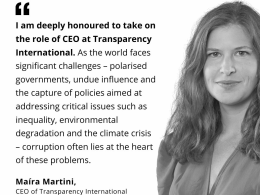The European Bank for Reconstruction and Development (EBRD) has appointed Gianpiero Nacci as Managing Director for Climate Strategy and Delivery (CSD). Nacci, a long-standing contributor to the EBRD’s climate initiatives, brings extensive expertise in green finance, industrial decarbonisation, and climate adaptation to his new role.
This appointment follows Harry Boyd-Carpenter’s transition to Managing Director of the Sustainable Infrastructure Group.
Nacci, an Italian national, has been with the EBRD since 2003, beginning as Principal Engineer in the Energy Efficiency department. Over the years, he advanced to Senior Engineer in 2006 and Deputy Head of Energy Efficiency and Climate Change in 2017. In 2021, he was named Director of Sustainable Business and Infrastructure within the CSD division, where he worked on advancing green finance and policy initiatives.
His experience spans industrial decarbonisation, the circular economy, energy transition, green cities, and nature financing.
“I am honoured to take on this role and build on the EBRD’s commitment to addressing climate challenges and biodiversity loss across our regions,” Nacci said. “We will continue scaling up green financing and driving private-sector investments to support a sustainable future.”
The EBRD has prioritised climate strategy in its operations, with over half of its business volumes dedicated to green initiatives. In 2024, the Bank’s green finance activities amounted to €9.7 billion, reinforcing its leadership in supporting climate resilience and sustainable development across its regions.
The organisation focuses on mobilising private-sector investments and delivering actionable solutions to address climate challenges in the economies where it operates.
With Nacci’s appointment, the EBRD aims to further enhance its focus on green finance, targeting key areas like industrial decarbonisation, urban climate adaptation, and sustainable infrastructure. The Bank’s ongoing efforts position it as a key player among multilateral development institutions in driving climate resilience and a transition to a greener economy.





















